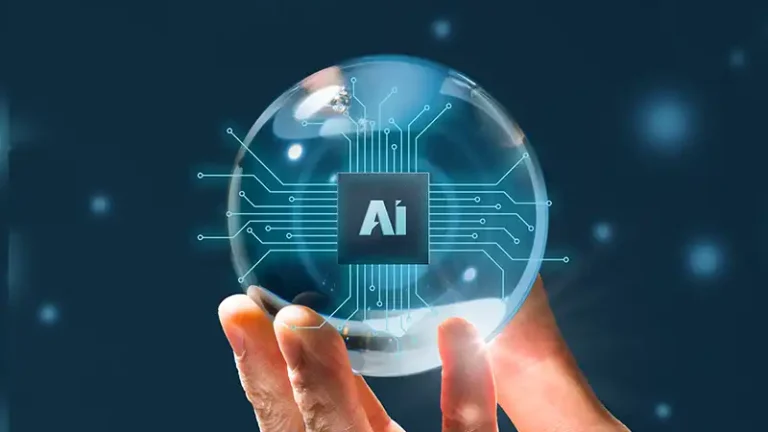
Tikcotech and the Future of Smart Innovation: A Deep Dive into Emerging Tech Dynamics
In an age defined by rapid digital acceleration and technological transformation, Tikcotech has emerged as a name synonymous with innovation, sustainability, and smart integration. As businesses and individuals alike navigate the complex and ever-changing tech landscape, understanding what defines and differentiates a brand like Tikcotech has become critical to anticipating the future.
This article unpacks the ecosystem around Tikcotech, exploring its technological advancements, industry contributions, product philosophies, and the broader impact it may hold across sectors like AI, IoT, green technology, and enterprise software. As we trace its growth, we’ll consider how a brand can shape—and be shaped by—global digital trends.
The Rise of Smart Tech Players in a Hyperconnected World
The 21st century has ushered in the most interconnected era in human history. Cloud computing, mobile connectivity, and big data analytics have changed how humans interact, work, and think. Yet among this web of innovation, only a few companies have successfully maintained a balance between disruptive change and practical application.
Tikcotech falls within this select group. Although it began with a modest presence in consumer electronics and digital services, it has since evolved into a dynamic leader in scalable technology solutions. Unlike many startups that fizzle out after the hype, Tikcotech has steadily built an ecosystem that supports businesses, consumers, and governments through intuitive tools and robust platforms.
What makes it particularly compelling is its philosophy: technological solutions should be seamless, efficient, and inclusive. This belief is visible in their product designs, development methodologies, and customer outreach strategies.
Product Ecosystem: Beyond the Surface
To understand the force of Tikcotech, it’s important to analyze the product suite it has developed. While initially focused on smart home devices and wearables, the company quickly expanded into AI-powered applications, cybersecurity, and environmental monitoring.
1. Consumer Technology
Smart Wearables: Fitness trackers, health monitors, and even emotion-sensitive wristbands form part of its hardware lineup. These devices sync with proprietary software platforms, ensuring real-time data analysis and privacy-focused cloud backups.
Home Automation: With smart lighting, climate control systems, and security integration, it devices provide homeowners with intelligent and automated environments.
2. Enterprise Solutions
Cloud Collaboration Suites: Aimed at medium-to-large enterprises, the suite includes tools for real-time communication, collaborative editing, virtual whiteboarding, and predictive analytics.
Workflow Automation: Using AI and machine learning, businesses can deploy customized automation pipelines, reducing operational costs and enhancing efficiency.
3. Public Infrastructure & Green Tech
In collaboration with municipalities, Tikcotech has implemented smart city initiatives—from traffic pattern analysis to water management sensors—proving its capacity to scale beyond individual or business users.
AI at the Core: Human-Centric Intelligence
One of the defining characteristics of it products is the integration of AI that enhances, rather than complicates, user experience. Instead of designing for technology’s sake, the brand focuses on solving specific pain points.
In the realm of personal assistants, for example, their voice-activated software doesn’t just set reminders or check the weather. It adapts over time, learning a user’s routine, preferences, and even emotional tone. This empathetic AI has applications not just in personal life but in mental health monitoring and elderly care.
Meanwhile, in enterprise environments, AI supports predictive maintenance for hardware, optimizes server loads for cloud applications, and provides behavioral analytics to help employers better understand productivity dynamics.
The company’s research division also focuses on natural language processing, image recognition, and autonomous learning—aligning with the broader global move toward AI-augmented productivity.
IoT Integration and the Connected Future
The Internet of Things is arguably one of the most influential revolutions of the digital age. From refrigerators that detect spoiled food to factories that manage production lines autonomously, IoT is everywhere. Tikcotech recognized this trend early and has since developed one of the most user-friendly IoT frameworks available.
A central hub controls all Tikcotech-enabled devices, allowing users to monitor, schedule, and interact with their smart environments from a single dashboard. More importantly, their devices are interoperable—meaning they can integrate with third-party platforms like Google Home, Alexa, and Apple HomeKit.
In industrial contexts, their sensors monitor temperature, vibration, and energy consumption in real-time. Factories using it sensors have reported up to a 30% increase in uptime and a 15% decrease in energy costs within six months of implementation.
Cybersecurity: Trust at the Foundation
Security is no longer optional; it’s a necessity. Whether dealing with smart homes or enterprise systems, digital threats are constant. Tikcotech has invested heavily in cybersecurity R&D, forming partnerships with global security experts and investing in end-to-end encryption protocols for all its devices and platforms.
Their zero-trust architecture ensures that every device, user, and access request is authenticated and continuously validated. Furthermore, they utilize blockchain-inspired ledger systems for logging activity, providing transparent and immutable data trails that are vital for compliance and forensic analysis.
In the event of potential breaches, its devices feature autonomous threat detection and isolation—limiting the blast radius of any attack and alerting users in real time.
Sustainability and Green Technology
With rising concerns about climate change and environmental degradation, tech companies are under pressure to be not just efficient but responsible. Tikcotech has taken significant strides in this arena.
Their smart energy management systems optimize power usage across buildings and city grids. In partnership with clean energy providers, they offer solar-compatible home kits that track, store, and redistribute energy as needed. These are particularly impactful in regions with unstable power supplies or limited infrastructure.
Moreover, 80% of Tikcotech’s product packaging is made from biodegradable or recycled material, and their manufacturing facilities use renewable energy for 60% of their operations. By designing products that are not just smart but sustainable, it is positioning itself as a leader in green technology.
Education, Training, and Social Impact
True innovation is not just about products—it’s also about people. Tikcotech runs an educational outreach program aimed at training the next generation of engineers, designers, and thinkers. Through coding bootcamps, STEM partnerships with schools, and internship programs, the company is actively investing in talent development.
They also support NGOs in deploying digital infrastructure to underserved communities. In rural areas of South Asia and Africa, it has helped establish low-cost Wi-Fi zones and distributed solar-powered learning tablets.
Their corporate social responsibility program focuses on digital inclusivity, ensuring that technological advancement doesn’t create deeper social divides.
Financial Growth and Market Reach
While innovation is the engine, financial health is the vehicle. In its last fiscal year, it posted a 40% year-over-year increase in revenue, driven largely by the expansion into Latin America and parts of Southeast Asia.
The company’s stock has been closely watched on both public and private markets, with several major institutional investors acquiring significant stakes. Analysts attribute its growth to both product differentiation and forward-looking leadership.
Tikcotech’s pricing model—offering freemium tiers for software and modular hardware packages—has proven effective in expanding market penetration, especially in budget-sensitive economies.
Challenges and Ethical Considerations
Despite its many successes, it is not without challenges. The integration of AI and data collection raises questions about user privacy, consent, and digital autonomy. Though the company has pledged full GDPR compliance and proactive transparency reports, watchdog groups continue to call for more robust regulation.
Supply chain constraints have also affected product timelines, particularly for microchips and rare earth elements. To address this, it is investing in vertical integration and alternative materials research.
Moreover, competing in markets dominated by giants like Apple, Google, and Amazon demands continuous innovation—a race that few can afford to lose pace in.
The Road Ahead: Vision and Strategy
Looking forward, it aims to become a full-spectrum technology provider across industries—from healthcare and education to logistics and governance. Their roadmap includes:
Launch of a decentralized personal data vault to give users greater control.
Partnerships with EV companies to provide in-vehicle AI assistants and route optimizers.
Expansion into space tech, exploring satellite-based connectivity and data analytics.
At its core, the company’s vision remains grounded in accessibility, intelligence, and sustainability.
Conclusion: Innovation with Purpose
In an age awash with new gadgets and disruptive apps, what sets a company apart is not just what it builds, but why it builds it. Tikcotech, through its consistent focus on usability, security, and sustainability, reflects a new wave of tech companies that are not merely chasing trends, but shaping the future with responsibility.
From AI to IoT, from smart cities to personal wellness, it stands as a beacon for what modern technology can—and should—be. It proves that innovation doesn’t have to come at the cost of ethics or equity. Instead, it can be the very foundation on which inclusive, efficient, and intelligent systems are built.



